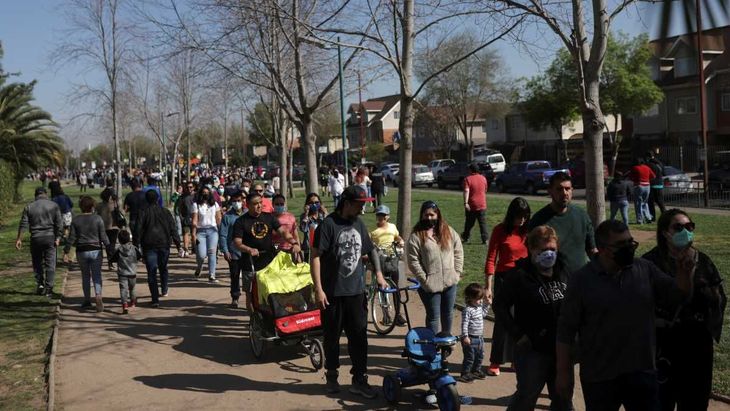The victory of the rejection was well above the projections of the polls, which had anticipated that the option of rejecting the constitutional change would prevail but not with this level of difference.
New Constitution
The new text, 178 pages long and produced over a year by a Constitutional Convention, enshrined a “Social State of Rights”, in response to claims expressed in the massive social demonstrations of October 2019.
Furthermore, he anticipated indigenous plurinationality and a new catalog of social rights in health, abortion, education and pensionswith a marked environmental emphasis and the protection of new rights, although it maintains the market economy.
Chilean plebiscite 2 1200 NA.jpg
latest polls
The “Rejection” option of the new Constitution led the polls and finally won, despite the massive “Approve” campaign, which in recent days mobilized crowds, especially in Santiago, fueling the illusion of victory.
The president of Chile, Gabriel Boric, assured that whatever the result of the plebiscite, he will call for “national unity” in an exercise with “more democracy” to overcome social fractures, he said when voting to applause in his hometown of Punta Arenas, extreme star of Chile.
the former president Michelle Bachelet, very popular in this country, said that if the Rejection option wins as the polls anticipate, “the demands of the Chileans are not going to be satisfied” and a new process should be called. The former president voted in Geneva, Switzerland, where she has just left her position as United Nations High Commissioner for Human Rights.
chile plebiscite 1200 NA.jpg

The lines at one of the voting tables in Santiago de Chile.
Argentine News
Compulsory attendance
For the first time in more than a decade, going to the polls was mandatory under penalty of a maximum fine of 180,000 pesos (about $200).
Experts expected the participation of more than 11 million peoplewell above the 8.3 million who voted in December, when Gabriel Boric won the presidential election, in what is already anticipated as a “participatory revolution.”
In the extreme north of the country, in the city of Arica, “the new generations are more for ‘I approve’ and want changes (…) the difference is generational,” estimates Aníbal González, 55, owner of a breeding farm pigs.
Source: Ambito
David William is a talented author who has made a name for himself in the world of writing. He is a professional author who writes on a wide range of topics, from general interest to opinion news. David is currently working as a writer at 24 hours worlds where he brings his unique perspective and in-depth research to his articles, making them both informative and engaging.




